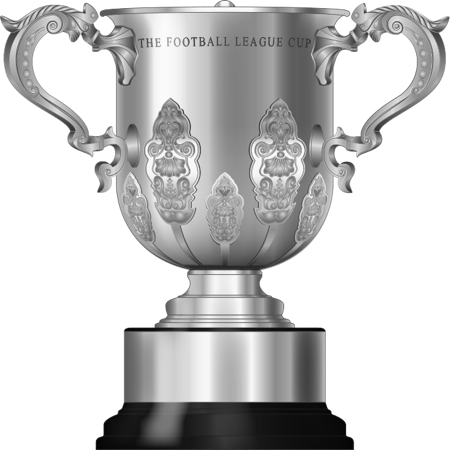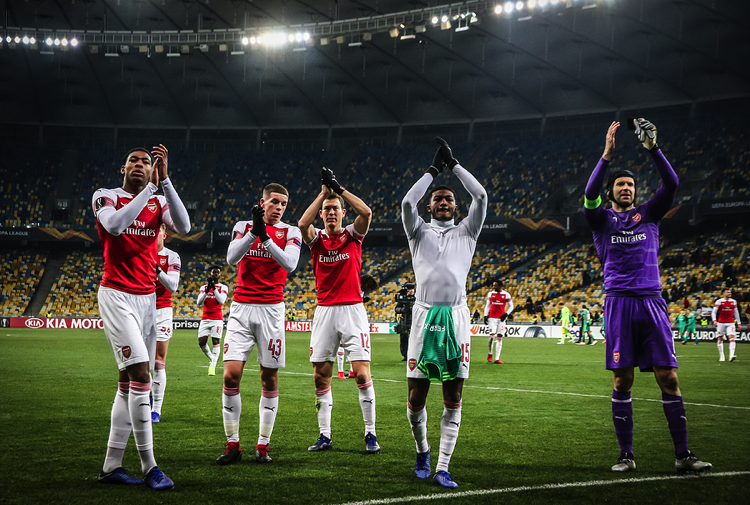Arsenal are undoubtedly one of the biggest and best clubs in English football – sorry (not sorry), Tottenham fans. They have won the FA Cup a record 14 times, with Man United (12) the only other team in double figures – with Spurs six behind having mustered eight wins. What’s more, their 13 top-flight league titles puts them third on that particular list of achievements. Whilst they trail Man United and Liverpool in that regard, they are well clear of fourth-placed Man City and Everton (nine titles each). And, did we mention Tottenham? No, because let’s be honest, is their total of two titles even worth mentioning?
But, believe it or not, we aren’t here to mock Spurs. We are, instead, considering Arsenal’s record in the EFL Cup. Have Arsenal ever won the League Cup, as the competition is also known and, if so, how many times and when and how?
Arsenal Have Won the League Cup Twice
The Gunners have not been anywhere near as successful in the EFL Cup as they have been in the other major English competitions. Their total of two wins puts them behind most big clubs in terms of titles and even some smaller clubs such as Spurs, plus East Midlands duo Nottingham Forest (four) and Leicester City (three) Leicester. But the Gunners haven’t won the League Cup since 1993, so their wait for a third League Cup has been rather a long one. Let’s take a closer look at their two victories though.
1993: Arsenal 2-1 Sheffield Wednesday
The last time the Gunners tasted success in this competition was in 1993 when they did a domestic cup double. Later in the season they also beat Sheffield Wednesday in the final of the FA Cup, but before that they saw off the South Yorkshire outfit 2-1 in the League Cup final. Paul Merson was Man of the Match in the Wembley final and he brought the Gunners level after 20 minutes. American John Harkes had given the Owls the lead after just eight minutes but Merse soon cancelled that out.
The unheralded Steve Morrow bagged the winner after 68 minutes, Merson getting the assist. It should have been a great day for Morrow but unfortunately it ended with a broken arm! Tony Adams tried to raise the Northern Irishman onto his shoulders but slipped and Morrow came crashing down. Cheers, skip!
1987: Arsenal 2-1 Liverpool
The score was also 2-1 when the Gunners first claimed this trophy but this time it was Liverpool who were on the receiving end. Once again Arsenal conceded early, Ian Rush putting the Merseysiders 1-0 up after 23 minutes. As they would six years later, the Gunners cancelled out the lead quickly, Charlie Nicholas scoring after half an hour.
The Scot would also bag the winner, sending the huge crowd at Wembley wild, or at least the Arsenal portion of them, by netting with just seven minutes to go. In truth it was an own goal, with Nicholas’s shot not heading for the target until a deflection off Ronnie Whelan helped it find the corner of the net. This was the club’s first silverware for some years and the first of the George Graham era. 12 months on they would return to the final but be beaten by underdogs Luton, but bigger and better things were just around the corner, including, of course, the league title in both 1989 and 1991.
Why Haven’t Arsenal Won the League Cup More Often?

For a club with as much silverware as Arsenal, their tally of just two League Cups is rather poor. The simplest explanation for their relative lack of success is that they have come unstuck in the final so often. They have made the showpiece game eight times and no club has lost as many EFL Cup finals as the Gunners. An unwanted record but a record nonetheless!
- 1968: Lost 1-0 to Leeds United
- 1969: Lost 3-1 to Swindon after extra time
- 1988: Lost 3-2 to Luton
- 2007: Lost 2-1 to Chelsea
- 2011: Lost 2-1 to Birmingham City
- 2018: Lost 3-0 to Man City
Losing to a strong Leeds side in 1968 was no embarrassment, whilst defeats to Chelsea and City can also be easily understood. However, many Arsenal fans will still be scratching their heads as to how they managed to go down in the final against Swindon, Luton and Birmingham City. Had they won those three, five wins in the competition overall would feel a lot more respectable.
Arsenal Give the Rest a Head Start
Another explanation for the club’s record in the EFL Cup is that they were a little late to the party. The first EFL Cup final took place in 1960/61 but Arsenal did not even enter it until the 1966/67 campaign. It did not become an obligation for Football League sides to enter the new competition until 1971 and for the first six seasons Arsenal, perhaps strangely, chose to throw their lot in with the Floodlit Cup instead!
That competition was played between 1955 and 1960 but few clubs took part, mostly from the south of the country and the Midlands. When the EFL Cup was introduced, the Floodlit Cup ceased to exist but the Arsenal board felt that the new tournament was “an interim step towards league re-organisation” and so opposed it. Had the Gunners been on board with the League Cup from its inaugural edition in 1960/61, perhaps they would have another piece or two of silverware in their cabinet but who knows?
Arsène Gives the Kids a Chance
One final explanation for the club’s EFL Cup record is that for a long period under Arsène Wenger the competition was largely used to rest the core squad and try out younger players. Wenger managed Arsenal from 1996 to 2018, taking charge of over 1,200 games. He won three league titles and an amazing seven FA Cups with the club.
But Wenger rather believed that the EFL Cup was a hindrance and only provided extra, unwanted fixtures in an already hectic English schedule. As such, he routinely made wholesale changes to his team, giving a number of youth players their first Arsenal appearances in the competition. Given just how good the Gunners were for much of Wenger’s reign, and his record in the FA Cup, we have to assume the club would have won at least a couple more EFL Cups had the French boss taken the competition more seriously.

